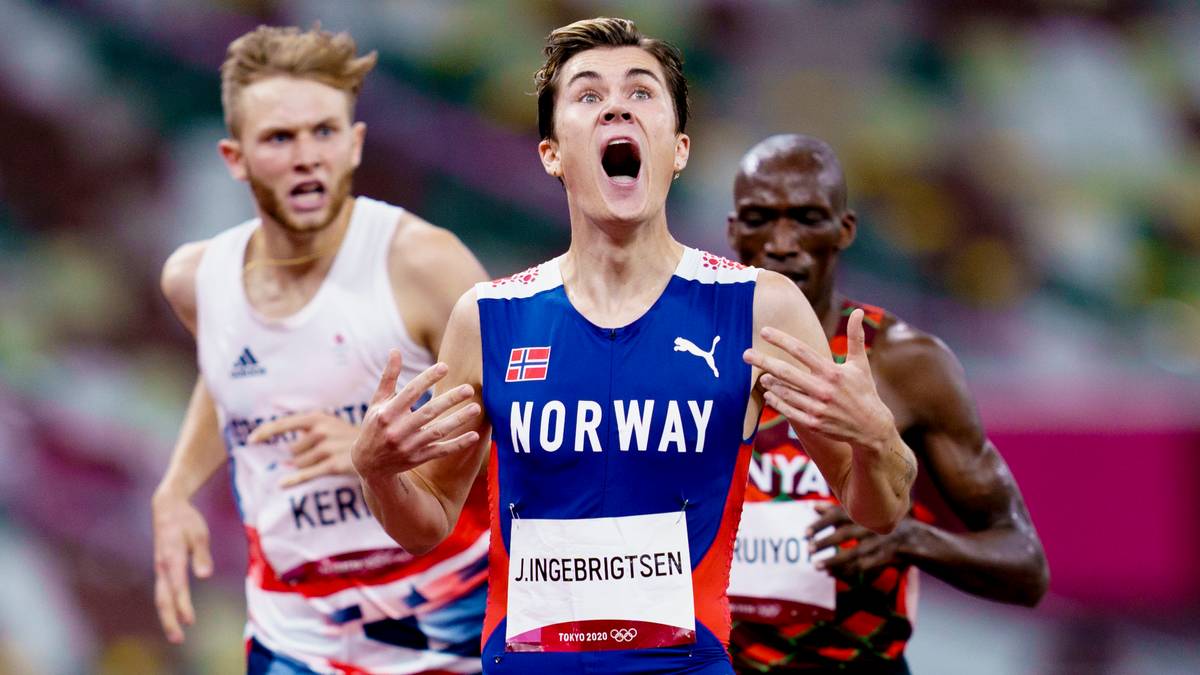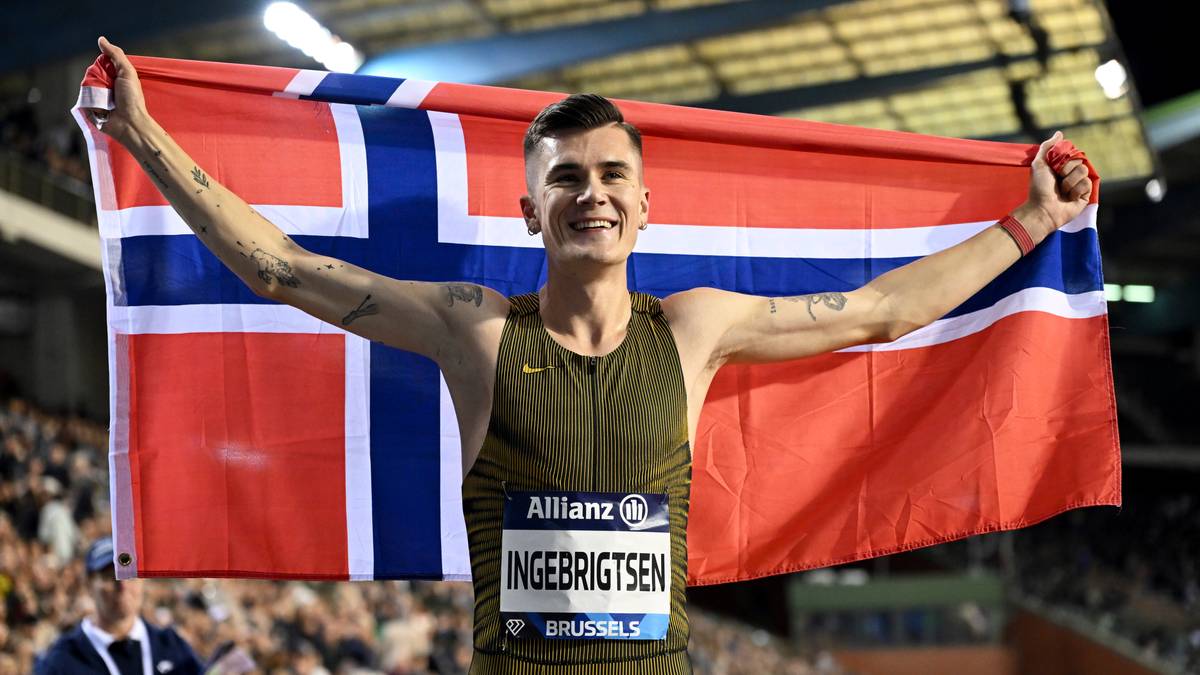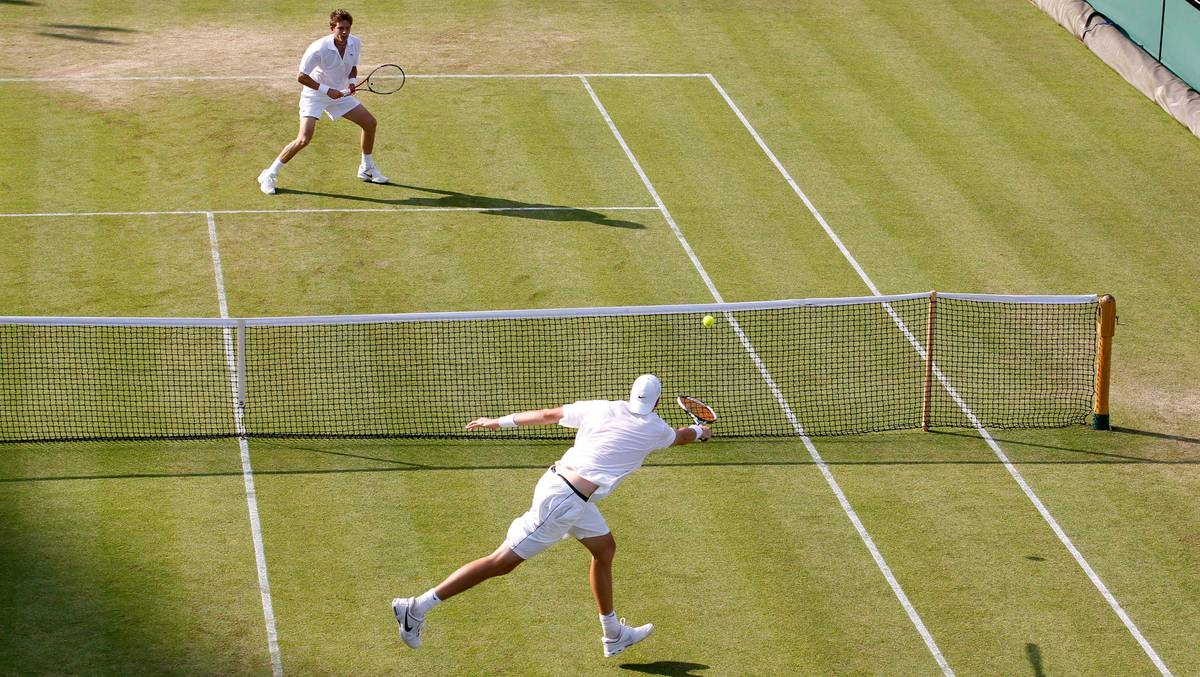– It says something about how strongly this engages the Norwegian people, says NRK sports commentator Jan Petter Saltvedt.
He was surprised at how strong the emotion the question evoked in the population.
DEMONSTRATIONS: Demonstrators gathered over the weekend in front of the International Olympic Committee (IOC) headquarters in Lausanne.
Photo: COFFRINI FABRIC/AFP
The participation of Russia and Belarus in the upcoming Olympics is a hot topic in sports.
Russian participation is also a topic in the NRK investigation.
React to numbers
In a survey conducted by Norstat, 47 percent answered yes to the fact that Norwegian sport should boycott the 2024 Olympics if Russian athletes are allowed to participate.
34 percent answered no. 19 percent said they didn’t know.

– It’s interesting that people are willing to take this important step further than what has been discussed so far. Boycott is the most powerful tool available in sport. It’s used very rarely, says Saltvedt.
Norway boycotted the Moscow Olympics in 1980. It happened after the Soviet invasion of Afghanistan.
– The numbers from Norstat are not surprising considering that we are seeing a brutal Russian war in Europe, which of course affects those of us in Norway, wrote the president of the Norwegian Sports Confederation (NIF), Berit Kjøll, in an email to NRK.
He repeated that Norway’s sporting position is that they do not want Russian and Belarusian participation in international sporting events.

CLOSE CONTACT: Sports president Berit Kjøll has close contacts with other Nordic sports organisations.
Photo: Håkon Mosvold Larsen / NTB
– We recently made this clear in a meeting with the IOC and all 206 of the world’s Olympic Committees on Monday this week. We are following the situation closely, and based on the IOC’s latest recommendations, we will continue dialogue with our own organisations, Kjøll wrote.
– Therefore, informational meetings and dialogues with special associations and sports circles will be held during this week. In addition, we have close contact and dialogue on the situation with other Nordic sports organizations, the president continued.
Minister of Culture and Equality Anette Trettebergstuen believes such a decision is down to sport.
– The sport is independent and not politically controlled, so it’s up to them to decide whether they want to boycott or not and who can participate. We in government also still believe that the IOC should not open itself to athletes from Russia and Belarus, Trettebergstuen told NRK.
IOC board member, Kristin Kloster Aasen, did not comment on the NRK survey.
Meeting at the IOC
On Tuesday, the IOC board discussed the Russian and Belarusian exemptions. There they made new recommendations regarding the possible return of athletes from the two countries.
Among other things, they recommended that no athletes who were part of the Russian or Belarusian armies be allowed to participate. No decisions have been made regarding Russia’s and Belarus’ participation in the 2024 Olympics.
Norway is one of the countries that recently asked the IOC to maintain a ban on Russian and Belarusian participation.
In the NRK survey, 69 percent believed it was right to ban Russian athletes from international sports.

– One thing is that it is much easier to answer yes whether Russia should be banned. But the fact that so many people think there should be a boycott too, if Russia is allowed to join, is quite surprising, Saltvedt said.
Saltvedt pointed out that the possibility of a Norwegian boycott is not something you would really dare to discuss.
He saw that in this case it would also be a question of who would decide this. Is it a question of politicians or is it the sport itself that should be held accountable.

SHOCKED: Sports commentator Jan Petter Saltvedt had no idea that the desire to boycott was so great in Norway.
Photo: Martin Leigland/NRK
Vadim Guttsait, Ukraine’s sports minister thanked the Norwegian people for their support of Ukrainian sports.
– They support the idea that as long as the war continues and sport is used politically by the aggressor, then it is not the time to allow Russian and Belarusian athletes back. Ukrainians were killed, living under bombardment and in a state of war, Guttsait told NRK.
Germany refused the boycott
The German Olympic Sports Confederation (DOSB) this week denied that the boycott of the Olympics in Paris is relevant.
– The German team will play, we ruled out the boycott due to general concern, said DOSB president Thomas Weikert in an interview with German media Funke.
Sports such as boxing and fencing have been opened to Russian and Belarusian participation.

“Infuriatingly humble coffee guru. Travel practitioner. Freelance zombie fanatic. Certified problem solver. Food scholar. Student.”





